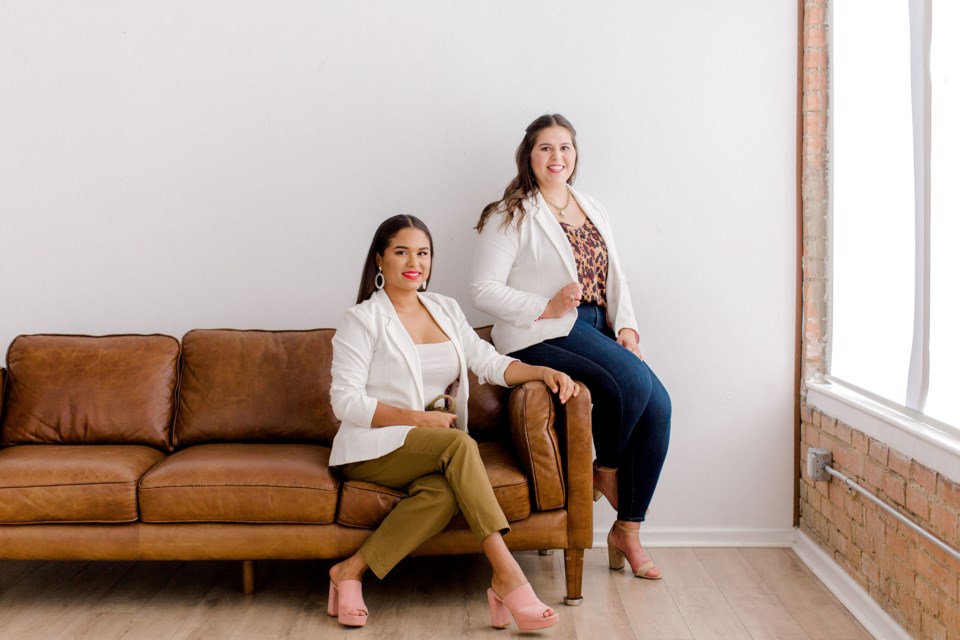The business world wasn’t always welcoming to women. There were roadblocks and hurdles — and still are. Some are big, but some of them are small enough to fit in your pocket. PWR WMN founders Kimberly Borges and Miriam McDonald stumbled upon this in the area of women’s work wear. Or rather, the lack thereof.
As car saleswomen at Sewell Cadillac of Dallas, Borges and McDonald needed to look professional, and that meant mirroring their suit-wearing male colleagues. Easier said than done. Even though both women had blazers and pants, the outfits weren’t practical. “We couldn’t carry business cards or even have a pen or our phone handy because the clothes we were wearing weren’t designed or made with our needs, a woman’s needs, in mind,” says Borges.
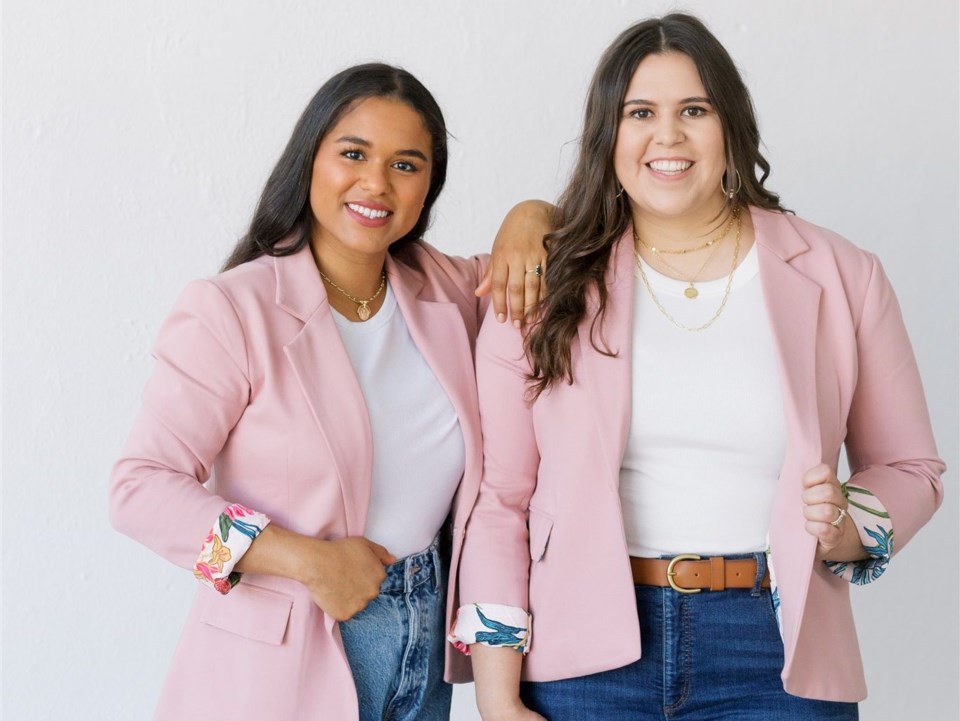
At any moment in history, women have worked. And today, women are working more and more, and we are taking positions previously reserved for men. Then why is it that clothes haven’t followed suit?
At the turn of the 20th century, menswear became practical: top hats and tails made way for comfortable and pragmatic business duds like Brooks Brothers’ ready-to-wear No.1 Sack Suit, fashion’s first mass-produced tailored threads for men. But women’s work garments lagged behind, and it wasn’t until the ’80s that women had a separate wardrobe for work with the iconic power suit. There was an expectation that young women would quit their jobs after getting married. Women’s business attire followed contemporary fashion trends — which have long been dominated by male designers — instead of meeting real-world practical needs. “And then there is the antiquated notion that pockets ruin a woman’s silhouette or figure,” says Borges.
“The fashion industry has not listened to women’s actual needs and desires for far too long,” says Borges. “It dresses women as it wants to see them, not as they actually are.” But women need a fashion industry that understands functionality and not just looks. Neither Borges nor McDonald had any connection with the world of fashion. They were, as McDonald says, “frustrated consumers,” desiring business clothes that not only looked good but were practical.
“That’s exactly why we created PWR WMN, to put a stop to outdated ideology and give women what they want and, more importantly, what they need,” says Borges. And that’s more than just pockets. “Not only do we make our blazers with functional pockets that are made specific to women’s needs,” adds McDonald, “but we also make them machine washable so that a wearer’s cost of maintenance is incredibly low, allowing her to save money and invest in other areas of life.”
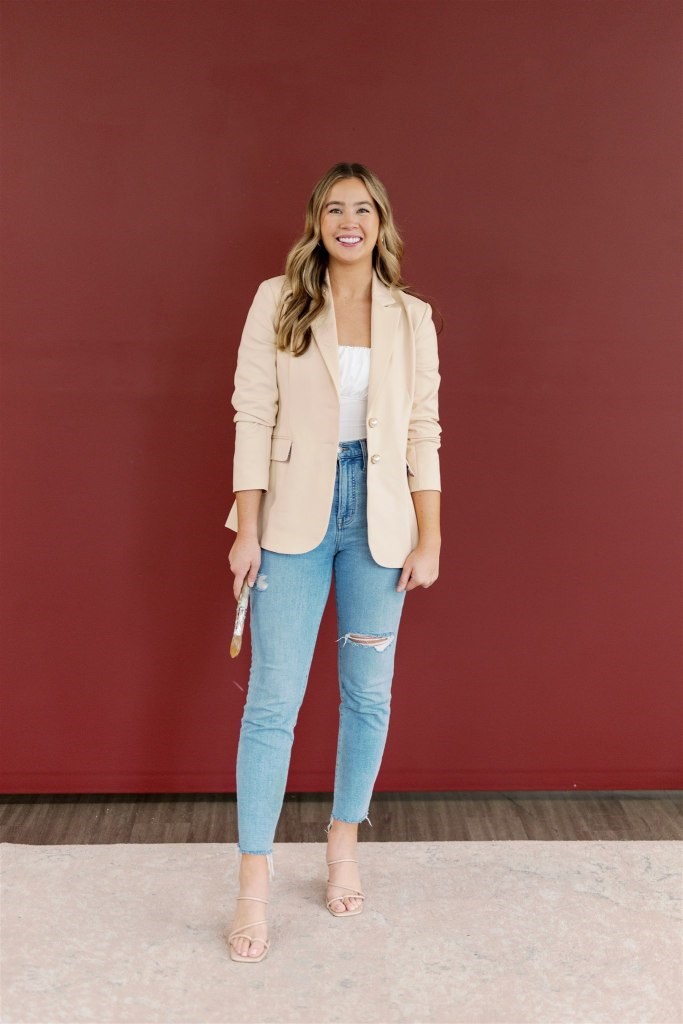
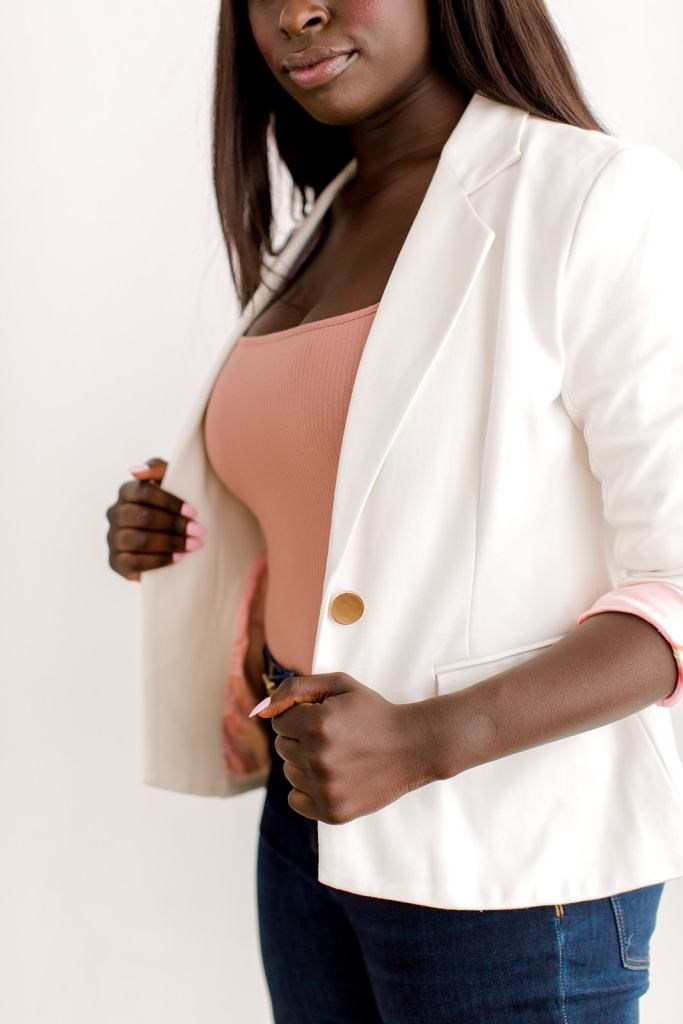
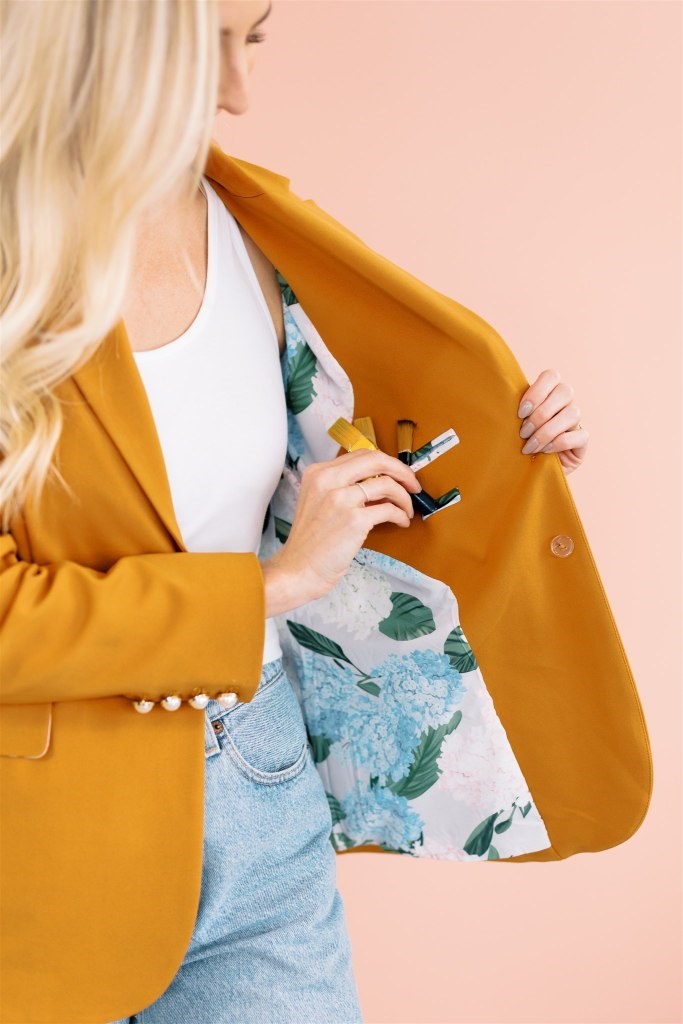
Leaving a successful career to start a business is not easy. “I was pregnant with my first baby, and I knew that if I didn’t do it then, it would be much harder to take my first steps as an entrepreneur while also trying to navigate being a first-time mom,” says Borges. With no investors, the only choice was to do it themselves. “Every bonus went into savings, no questions asked,” says Borges. McDonald told us they talked about their business idea for four months before finally moving forward. “Our first step was to sit down and draw out the things we wish we could buy but couldn’t when we looked for blazers,” says McDonald. “After we drew out our ideas, we then filed for an LLC and started looking for a manufacturer.”
But right after the company launched in 2019, the COVID-19 pandemic broke out. “I can’t tell you the panic we felt, knowing we had started a blazer company a few months before all offices shut down and no one was wearing work clothes anymore,” says Borges. Resilience is what got them through: they increased their social media presence, they networked and they kept pushing. “Eventually, people went back into the office or decided they wanted to look nice for their Zoom calls, and our sales picked back up again.”
Borges and McDonald built the PWR WMN brand based on the concept that women should not sacrifice looks for functionality. “They should be mutually inclusive,” says Borges. “Women shouldn’t have to decide between feeling good and being prepared. Women deserve to express themselves and come to the table as they are, as well as be equipped with the tools they need to be successful.”
The result is sharp, easy-to-wear blazers that are as practical as they are stylish. It’s not just the outside of the blazer that empowers women. “We also use PWR WMN blazers to celebrate other women by putting artwork from female artists in the lining,” says McDonald. “So you get to wear art and celebrate other women every time you wear a PWR WMN blazer.”
Looking back now, after almost four years of being business owners, McDonald and Borges share the wisdom they collected along the way. “Starting a business forces you into the role of a constant student,” McDonald says. “You don’t have to know it all or do it all, just start with one first step and approach it with lightness and confidence. Brick by brick, you will build the house.”
For Borges, one challenge she faced in her journey was finding balance. “On the one hand, you want to invest every cent into your dreams and passions, but on the other, you have bills to pay and a little mouth to feed and nurture,” she says. “At the end of the day, we had to be smart about every step we took.”
Now, the two best friends–turned–co-owners are looking into their plans for the future of the company. “We are planning to scale PWR WMN and take her into other states,” says Borges, adding, “We’d like for PWR WMN to be an international brand in the future.” More power to them.

